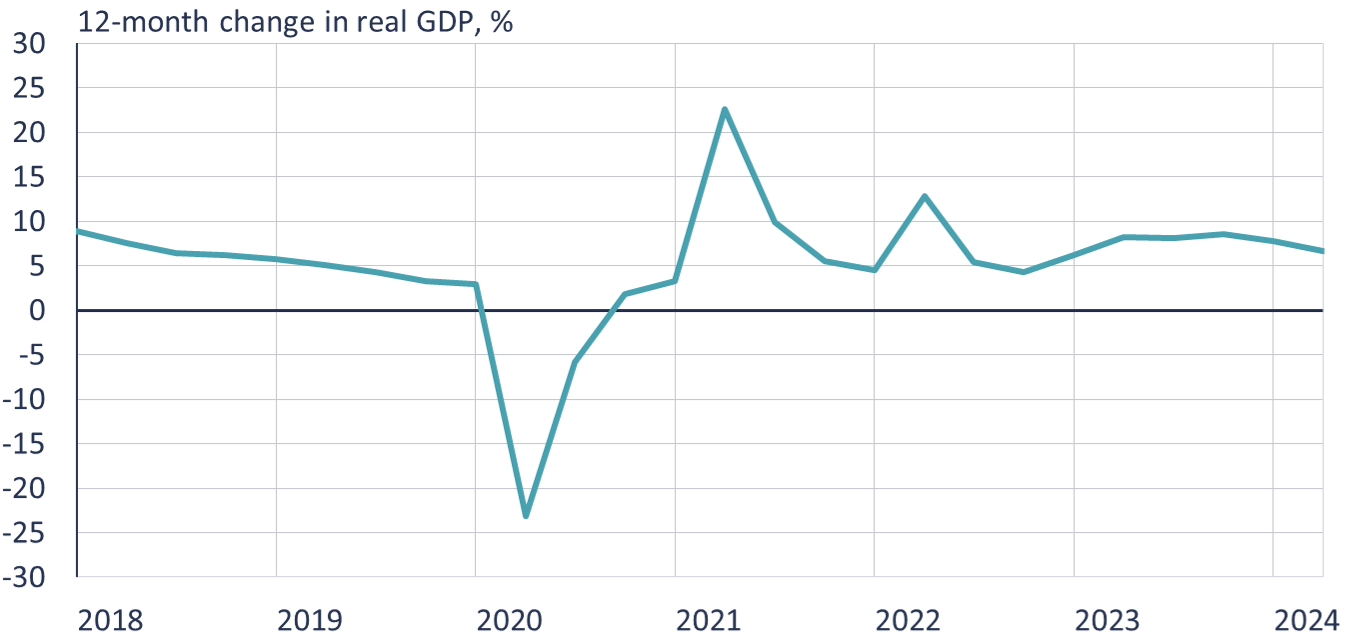BOFIT Weekly Review 36/2024
Despite missing forecast numbers, India posted robust economic growth in April-June
India’s GDP growth rose by 6.7 % y-o-y in real terms in the first quarter of the government’s fiscal year (April-June), slightly below the 7.1 % growth forecast of India’s central bank (Reserve Bank of India). The slightly-lower-than-expected growth likely reflects transient factors such as the last spring’s record heat wave that reduced agricultural production growth to 2 %. Growth in commercial trade, hotel services, transport and telecommunications was also relatively sluggish (5.7 %). In contrast, growth in industrial output (7.0 %) and construction (10.5 %) remained robust.
The fastest growing domestic demand-side components of GDP were fixed investment (up 7.5 %), a reflection of the government’s lavish spending on infrastructure projects. Consumption was up by 6.3 %, lifted by strong private consumption. Export growth (8.7 %) well exceeded import growth (4.4 %), improving India’s external balance. Purchasing manager indices suggest that economic growth remained strong in the second quarter of this year.
India’s quarterly real GDP growth, 2018–2024
Note: Real growth in 2011–2012 fiscal year prices.
Sources: Government of India, Ministry of Statistics and Programme Implementation and BOFIT.
The strong economic performance was welcome news to prime minister Narendra Modi, who has just formed his third government. His latest cabinet is largely unchanged from the pre-election line-up. The public-investment-driven growth model introduced in the previous election cycle appears to have so far lived up to expectations. It long-term goal, however, assumes that improved infrastructure through public investment will trigger a wave of private investment. There is currently no signs that this is happening.
Despite the high growth number, the government has face criticism that Indian economic growth is too low to generate a sufficient supply of jobs and welfare for India’s youthful population. In recent speeches, prime minister Modi has underscored the importance of further economic reforms. It is unclear, however, what reform policies the new government will pursue, especially as the BJP, the largest party in government, lost its majority in the lower house Lok Sabha. This reduced mandate has forced the BJP to be more sensitive to the economic wishes of other parties in the governing coalition.